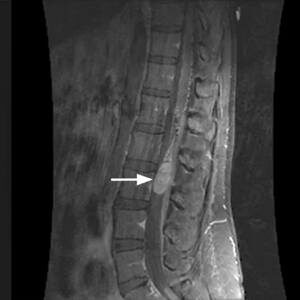Spinal Cord Tumors

Spinal Cord Tumors
Spinal cord tumors can be found at various levels of the spine cervical, thorasic, lumbar and sacral. They can be
- Intra medullary
- Intra dural extramedullary
- Extradural
- Bone – tumor from the vertebra
Symptoms
Spinal cord tumors can cause different signs and symptoms, especially as tumors grow. The tumors may affect your spinal cord or the nerve roots, blood vessels or bones of your spine. Signs and symptoms may include:
- Pain at the site of the tumor due to tumor growth
- Back pain, often radiating to other parts of your body
- Feeling less sensitive to pain, heat, and cold
- Loss of bowel or bladder function
- Difficulty walking, sometimes leading to falls
- Back pain that’s worse at night
- Loss of sensation or muscle weakness, especially in your arms or legs
- Muscle weakness, which may be mild or severe, in different parts of your body

Treatments
Treatment options for most spinal tumors include:
Periodic Follow Up: Some spinal tumors may be discovered before they cause symptoms — often when you’re being evaluated for another condition. If small tumors aren’t growing or pressing on surrounding tissues, watching them carefully may be all that’s needed.
During observation, your doctor will likely recommend periodic CT or MRI scans at an appropriate interval to monitor the tumor.
Surgery: This is often the treatment of choice for tumors that can be removed with an acceptable risk of spinal cord or nerve injury damage.
Newer techniques and instruments allow us to reach tumors that were once considered inaccessible. The high-powered microscopes used in microsurgery make it easier to distinguish tumor from healthy tissue.
We will also monitor the function of the spinal cord and other important nerves during surgery, thus minimizing the chance of patients developing functional deficits
Sometimes when the tumour has a chance of coming back the surgery may be followed by radiation therapy or chemotherapy or both.
Recovery from spinal surgery usually takes may take weeks or longer, depending on the procedure. You may experience a temporary loss of sensation or other complications, including bleeding and damage to nerve tissue.
